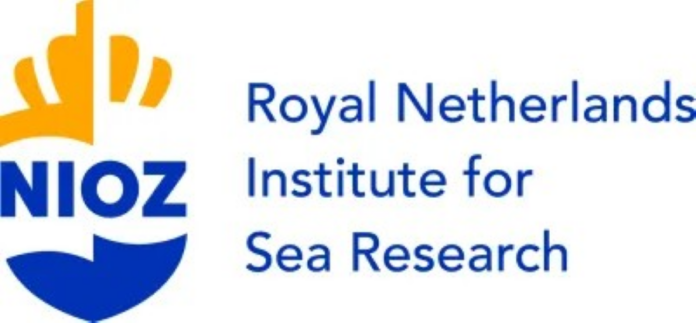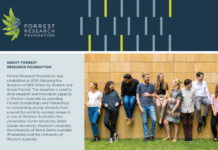Job Overview
The Department of Coastal Systems (COS) at the Royal Netherlands Institute for Sea Research (NIOZ) and the Department of Physical Geography at Utrecht University are inviting applications for a 3.5-year postdoctoral position. This opportunity is part of two larger projects funded by the Netherlands Organisation for Scientific Research (NWO): WADSED and SEDWAY. The successful candidate will contribute to pioneering research exploring the interactions between biota (living organisms) and sediment, and how these feedback loops influence sediment composition and dynamics in the Wadden Sea. The role is jointly supervised by Prof. T. van der Heide at NIOZ and Dr. Valerie Reijers at Utrecht University.
About Royal NIOZ
NWO-NIOZ, the Royal Netherlands Institute for Sea Research, is the premier oceanographic institute in the Netherlands. It conducts multidisciplinary, high-level marine research that spans fundamental to applied topics, addressing key scientific and societal questions about ocean functioning. NIOZ supports cutting-edge marine science with its National Marine Research Facilities (NMF), which include a fleet of research vessels and state-of-the-art seagoing equipment. The institute fosters collaboration and excellence in marine research, education, and policy development.
About the Department of Coastal Systems (COS)
The COS department at NIOZ uses a blend of laboratory work, field studies, and numerical modeling to investigate how physical, chemical, and biological processes interact in marine ecosystems. These studies cover the full spectrum from primary producers to top predators, and coastal to pelagic (open sea) environments. By analyzing how these processes govern the distribution, composition, and productivity of marine species and habitats, COS research is pivotal for understanding the functioning of marine systems and their responses to global changes such as climate shifts and biodiversity loss.
Utrecht University’s Department of Physical Geography
At Utrecht University, the Faculty of Geosciences is dedicated to studying Earth’s systems—from its deep core to its surface—and understanding humanity’s interaction with natural landscapes. With over 3,400 students and 720 staff members, the department excels in research and education across Earth Sciences, Human Geography & Spatial Planning, and Sustainable Development. The Department of Physical Geography focuses on understanding the dynamics of continental and coastal systems, which is essential for managing Earth’s resources sustainably and preparing for future environmental challenges.
Project Overview
The research within this postdoc position will focus on tidal basins and estuaries, which are known for their pronounced environmental gradients influencing sedimentation processes across various scales. At the macro-scale, tidal flows and current dynamics create gradients of increasing mud concentrations, moving from tidal inlets and channels to more sheltered tidal mudflats. However, superimposed upon these large-scale processes are localized interactions where ecosystem engineers—species that modify their environment—play a significant role. For example, seagrass meadows or bivalve reefs can dramatically alter sediment composition and hydrodynamic conditions, shaping the ecosystems they inhabit.
This project hypothesizes that:
- Ecosystem engineering species can impact sediment composition at the tidal basin scale.
- Human activities in these ecosystems may have far-reaching effects on sediment dynamics beyond the immediate vicinity of the habitats they modify.
The postdoctoral researcher will explore these hypotheses by analyzing existing datasets on habitat distribution, sediment characteristics, hydrology, and environmental management. They will work closely with experts from the WADSED and SEDWAY projects and present findings to societal partners and at international conferences.
Candidate Requirements
- A completed PhD in ecology, biology, geomorphology, marine or environmental science, or a related field.
- Strong interest and knowledge in coastal ecology, geomorphology, particularly the Wadden Sea or other intertidal systems.
- Advanced analytical and computational skills for working with large datasets and performing complex (spatial) statistical analyses.
- Enthusiasm for interdisciplinary collaboration with scientists, policymakers, and NGOs involved in large-scale research projects.
- Strong written and verbal communication skills in English.
- A commitment to conducting multi-disciplinary work in an international and collaborative environment.
Position Benefits
- 42-month full-time position with NWO-I (Dutch Research Institutes Organisation).
- Salary scale 10 or 11, based on experience, compliant with CAO-WVOI (Collective Labour Agreement for Dutch Research Institutes).
- Annual leave of 338 hours for a full-time 40-hour workweek.
- Pension scheme with ABP (Algemeen Burgerlijk Pensioenfonds).
- Holiday allowance of 8% and a year-end bonus of 8.33%.
- Full reimbursement of public transportation costs for 2nd-class travel.
- Flexible employment benefits plan to exchange part of the salary for additional days off or for purchasing a bicycle with tax advantages.
- Support for relocation expenses for international hires and assistance in finding suitable accommodation.
Application Process and Deadline
For more information about this position, potential candidates can contact Prof. Dr. Ir. Tjisse van der Heide at NIOZ. For inquiries about the application procedure, email working@nioz.nl. or visit website
The deadline for applications is October 8, 2024.
















 The African Research (AR) Index is a comprehensive scholarly directory and database focused explicitly on journal publishers that publish and disseminate African research.
The African Research (AR) Index is a comprehensive scholarly directory and database focused explicitly on journal publishers that publish and disseminate African research.

